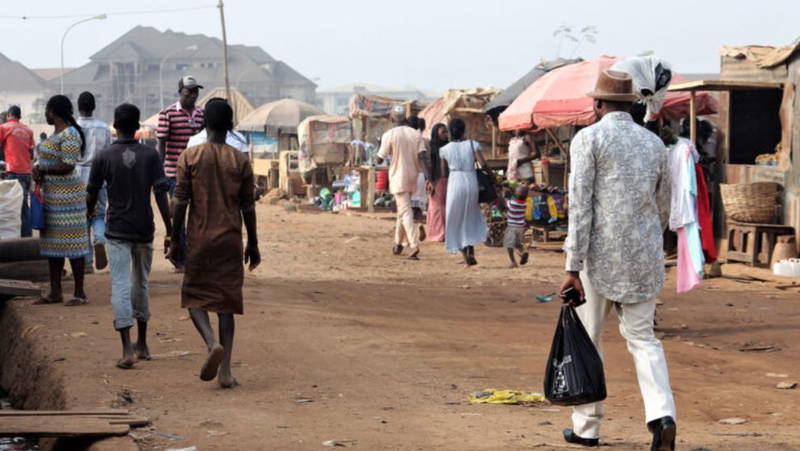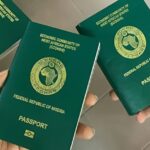The World Bank has projected that 139 million Nigerians are living in poverty, despite the economic reforms under the administration of President Bola Tinubu.
The figure was detailed in the bank’s latest Nigeria Development Update (NDU) report titled “From Policy to People: Bringing the Reform Gains Home.”
The report revealed that data showed that 139 million Nigerians are living in poverty, highlighting how external shocks, policy lags, and soaring inflation have deepened hardships despite recent stabilization efforts by Tinubu’s administration.
The report revealed that poverty levels have surged from 87 million in 2023 to 129 million earlier this year, now climbing to 139 million in 2025—a rise attributed to factors like the COVID-19 fallout, naira devaluation, and persistent food inflation that has eroded household purchasing power.
Speaking during the presentation of the report, World Bank’s Country Director for Nigeria, Mathew Verghis, however, commended the federal government for implementing bold policy reforms — particularly the removal of petrol subsidy and exchange rate unification — noting that these actions have begun to stabilise the economy and lay a stronger foundation for long-term growth.
Verghis: “Over the last two years, Nigeria has implemented major reforms around the exchange rate and petrol subsidy. These policies have laid the foundation for transforming the country’s economic trajectory for decades to come.
“Growth has picked up, revenues have risen, debt indicators are improving, the FX market is stabilising, reserves are rising, and inflation is finally beginning to come down. These are major achievements, and many countries would envy them.”
However, he cautioned that millions of Nigerians have yet to feel the benefits of these reforms, warning that macroeconomic gains must be swiftly converted into welfare improvements.
“Despite these stabilisation gains, many Nigerians are still struggling. In 2025, we estimate that 139 million Nigerians are living in poverty. The challenge is clear: how to translate reform gains into better living standards for all,” he said.
The new NDU report, titled “From Policy to People: Bringing the Reform Gains Home,” outlines a three-point agenda for sustaining progress reducing inflation, improving the efficiency of public spending, and expanding social safety nets.
Verghis emphasized that curbing food inflation is particularly crucial to protecting the poor and maintaining public support for ongoing reforms.
“Food inflation affects everyone but hits the poor the hardest. It also threatens to undermine political support for reforms. Tight monetary policy is essential, but it must be complemented by structural measures that tackle supply and market bottlenecks,” he explained.
He further stressed the need for better management of public resources and stronger safety net programmes to cushion economic hardship and promote inclusive growth.
“These are not abstract ideas — they are practical steps that can turn macro-stability into improved livelihoods,” he said.
Nigerian Government reacts
However, the Nigerian Presidency has disputed the report from the World Bank, which estimated that 139 million citizens are living in poverty.
This is as the Presidency described the figure as “unrealistic” and detached from the country’s economic realities.
This position was made known by Tinubu’s Special Adviser on Media and Public Communication, Sunday Dare, in a post on his official X handle.
“While Nigeria values its partnership with the World Bank and appreciates its contributions to policy analysis, the figure quoted must be properly contextualised. It is unrealistic,” Dare said.
The Presidency explained that the 139 million figure was derived from the global poverty line of $2.15 per person per day, set in 2017 using Purchasing Power Parity, and should not be mistaken for an actual headcount of poor Nigerians.
It noted that when converted to nominal terms, the $2.15 benchmark equals about N100,000 per month at current exchange rates, which is well above Nigeria’s new minimum wage of N70,000.
“There must be caution against interpreting the World Bank’s numbers as a literal, real-time headcount. The estimate is derived from the global poverty line of $2.15 per person per day, a benchmark set in 2017 Purchasing Power Parity terms. If converted nominally, that figure equals about $64.5 per month, or nearly N100,000 at today’s exchange rate, well above Nigeria’s new minimum wage of N70,000. Clearly, the measure is an analytical construct, not a direct reflection of local income realities.
“Poverty assessment under PPP methodology uses historical consumption data (Nigeria’s last major survey was in 2018/19) and often overlooks the informal and subsistence economies that sustain millions of households. The government, therefore, regards the figure as a modelled global estimate, not an empirical representation of conditions in 2025. What truly matters is the trajectory, and Nigeria’s is now one of recovery and inclusive reform,” the statement added.
The statement also noted that the current administration had expanded a number of welfare and intervention programmes aimed at cushioning the impact of recent reforms, while laying the groundwork for long-term prosperity.
Among the key initiatives Dare highlighted are, “Conditional Cash Transfers: Expanded to reach up to 15 million households nationwide, with verified digital enrolment through the National Social Register. Over N297 billion has been disbursed since 2023 to poor and vulnerable families. Renewed Hope Ward Development Programme: A major new initiative targeting all 8,809 electoral wards, delivering micro-infrastructure, livelihoods, and social services directly at the community level.
“National Social Investment Programmes: Strengthened components such as N-Power, GEEP micro-loans (TraderMoni, MarketMoni, FarmerMoni), and Home-Grown School Feeding to protect jobs, encourage small enterprise, and keep children in school. Food Security Initiatives: Distribution of subsidised grains and fertilisers, mechanisation partnerships, and the revival of strategic food reserves to curb inflationary pressure on staples.
“Renewed Hope Infrastructure Fund: Financing critical energy, road, and housing projects to lower living costs and stimulate local employment, National Credit Guarantee Company: Expanding affordable credit to small businesses, women, and youth entrepreneurs through risk-sharing mechanisms with commercial banks.”
Nigerians React to World Bank’s report
Meanwhile, prominent Nigerians and opposition groups have begun to react to the report of the World Bank that revealed that 139 million citizens are living in poverty.
The Labour Party’s Interim National Publicity Secretary, Tony Akeni, said the figures reflect the grim realities of life in the country.
“While the President talks about growth and reduced inflation, these are only figures on paper. They haven’t translated into any advantage for the ordinary Nigerian,” Akeni said.
He urged the government to ensure its economic reforms begin to yield tangible results, adding that the continuous fall of the naira has pushed many into extreme poverty.
“In some places, people earn maybe a dollar or two a day. It’s crazy,” he said.
Also, the New Nigeria People’s Party (NNPP) spokesman, Ladipo Johnson, accused the government of worsening Nigeria’s debt crisis and failing to cushion the impact of its policies.
“The President keeps proposing new loans even after exceeding budget targets. These contradictions point to more perils for Nigeria,” Johnson said, warning that the poverty rate could rise further before year-end.
The Peoples Democratic Party’s Deputy National Youth Leader, Timothy Osadolor, also lamented that 139 million citizens are living in poverty, accusing the government of deceiving Nigerians about its achievements.
“We don’t need the World Bank or the UN to tell us there’s hunger in the land. You can see it on the faces of Nigerians everywhere.
“Nigerians are dying of poverty. If the President cannot resign, he should at least work to save his name before history judges him,” Osadolor stated.
Likewise, the National Publicity Secretary African Democratic Congress (ADC), Bola Abdullahi, said the aid government’s claims of progress were “meaningless.”
“The GDP numbers mean nothing because they don’t reflect the lives of ordinary Nigerians. We’re glad the World Bank has said it, maybe the government will listen to its friends if they don’t want to listen to us,” he added.
The Chief Executive Officer of the Centre for the Promotion of Private Enterprise, Muda Yusuf, in his reaction, said there was a lag between reforms and their positive impact.
“The process of fixing what’s broken has aggravated poverty,” he said, explaining that exchange rate unification and fuel subsidy removal spiked inflation and weakened purchasing power.
Yusuf added that while macroeconomic stability was improving, the next step must focus on reducing the cost of living through targeted interventions in agriculture, infrastructure, and energy.
“We need different policies now to address welfare directly,” he added.





